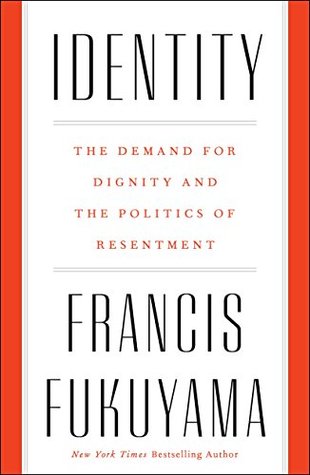More on this book
Community
Kindle Notes & Highlights
Read between
September 18 - September 22, 2018
Rousseau was wrong about some important things, beginning with his assertion that early humans were primordially individualistic. We know he was wrong, first because we see no archaeological or anthropological evidence of presocial human beings, and second because we know with high confidence that the primate ancestors of modern human beings were themselves highly social. Existing primates have complex social structures along with, evidently, the emotional faculties needed to sustain them.12 Rousseau’s assertion that pride emerged only at a certain stage of social evolution is curious; it begs
...more
This highlight has been truncated due to consecutive passage length restrictions.
Hegel accepted this link between moral choice and human dignity; human beings are morally free agents who are not simply rational machines seeking to maximize satisfaction of their desires. But unlike Rousseau or Kant, Hegel put recognition of that moral agency at the center of his account of the human condition.
In The Phenomenology of Spirit, he argued that human history was driven by a struggle for recognition. The demand comes initially from a warrior who is willing to risk his life in a bloody battle, not for territory or wealth, but simply for recognition itself. But this recognition ultimately fails to be satisfying because it is the recognition of a slave, that is, of someone without dignity.
The young Hegel witnessed Napoleon riding through his university town after the Battle of Jena in 1806 and saw in that act the incipient universalization of recognition in the form of the principles of the French Revolution. This is the sense in which Hegel believed that history had come to an end: it culminated in the idea of universal recognition;
Napoleon had a huge impact -also positive- to Europe. He e.g. liberated the Jews and much more.
PS. I myself am not an universalist. Also I do not recognize dignity for all human people but only to those who are participating in building a common good. But that is another issue.
Americans have been proud of their naturalized citizens and typically make a great deal out of the naturalization ceremony, with color guards and hopeful speeches by local politicians. As the political scientist Seymour Martin Lipset used to point out, in the United States one can be accused of being “un-American” in a way that one could not be said to be “un-Danish” or “un-Japanese.” Americanism constituted a set of beliefs and a way of life, not an ethnicity; one can deviate from the former but not the latter.
In both Europe and the United States, that debate is currently polarized between a right that seeks to cut off immigration altogether and would like to send current immigrants back to their countries of origin and a left that asserts a virtually unlimited obligation on the part of liberal democracies to accept migrants. The real focus should instead be on strategies for better assimilating immigrants to a country’s creedal identity. Well-assimilated immigrants bring a healthy diversity to any society, and the benefits of immigration can be fully realized. Poorly assimilated immigrants are a
...more
full enjoyment of rights actively enforced by state power is a reward for membership in a national community and acceptance of that community’s rules. The right to vote is particularly important, since it gives individuals a share of state power.
Contemporary liberal democracies do not demand a lot in return for state protection of their citizens’ rights, and in particular the right to vote. The sense of national community might be strengthened by a universal requirement for national service. Such a mandate would underline the fact that citizenship requires commitment and sacrifice to maintain. One could do it by serving either in the military or in a civilian capacity. This requirement is actually articulated in the American naturalization oath, which enjoins willingness to bear arms on behalf of the country, or to work in a civilian
...more
If such service was correctly structured, it would force young people to work together with others from very different social classes, regions, races, and ethnicities, just as military service does today. And like all forms of shared sacrifice, it would be a powerful way of integrating newcomers into the national culture. National service would be a contemporary form of classical republicanism, a form of democracy that encouraged virtue and public-spiritedness rather than simply leaving citizens alone to pursue their private lives.


